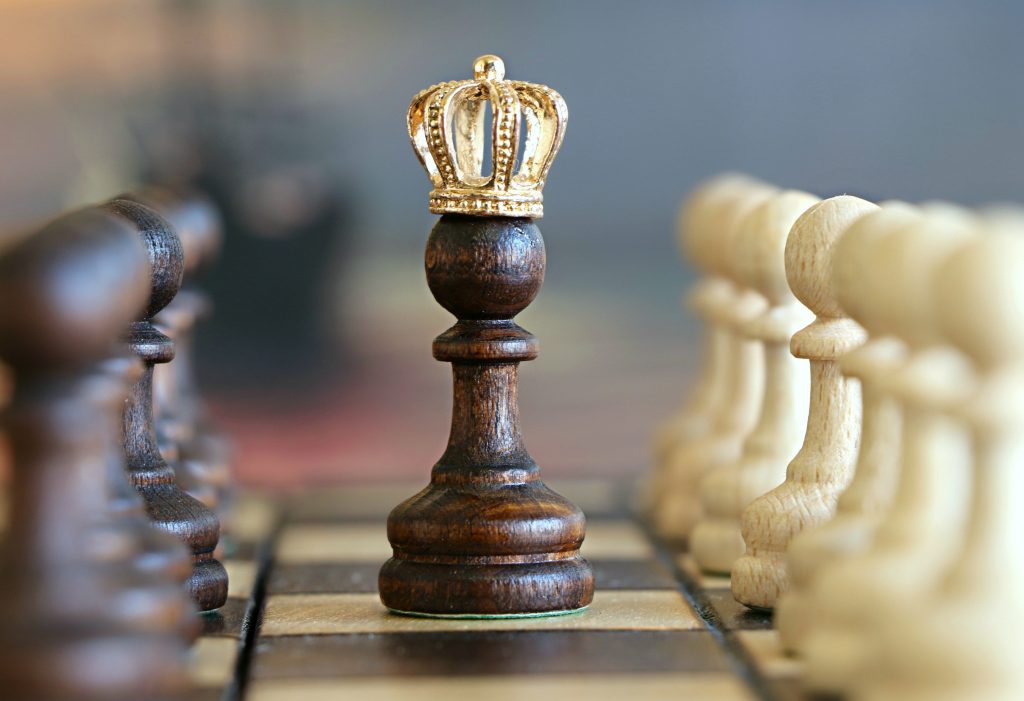
When we ask the question “does meditation increase intelligence?”, there are two answers – the short one and the long one. And the short answer is yes, a wealth of evidence does suggest that meditation will increase our intelligence, boosting brain matter and sharpening our cognitive abilities.
However, it wouldn’t be much of a blog if we left it at that, and when we start to consider this question more deeply, things can get a little more complicated. To understand exactly how and why meditation increases our intelligence, we have to think about what intelligence is – and going down that philosophical path is a little more of an adventure.
Understanding Intelligence: A Philosophical Conundrum
I have no special talent. I am only passionately curious.
Albert Einstein
In our culture, intelligence is an extremely loaded term. It is something we tend to associate with certain groups of people, its definition is simultaneously nebulous yet narrow, and it can be used in both vaguely and explicitly unpleasant ways to characterise a person’s inherent value to society.
It is also something, unfortunately, which is tied to some profound historic wrongs, with people’s ideas about intelligence and hierarchy being used to justify everything from eugenics to discriminatory behaviour.
We still live in the shadow of a world where those with the most power in society decided who was even capable of intelligence based on extraneous factors such as race, gender and class, and who stubbornly insisted any display of talent in certain groups was either somehow morally dubious (with a common Victorian attitude stating that a woman with original ideas must have inevitably stolen them off a man) or the exception that proves the rule.
Because a certain type of person has historically enjoyed a monopoly on culture and education, they had the latitude to define intelligence on their own terms – and in a way that could flatter their ego and serve their interests.
This is why we still often believe that intelligence is something which we are born with rather than something that can be nurtured. We associate intelligence with single mindedness, analytical and “unemotional” thinking, or appearing to be interested in very particular aspects of culture. We can even be surprised if someone we think of as having “frivolous” interests, enjoys practical work or is deeply creative demonstrates a high level of intellect.
Where We Get Intelligence Wrong
We can also undervalue emotional insight, innovative thinking and a-typical ways of solving problems and viewing the world. If a person’s aims don\’t fit into our ideas of what a “smart” person would do (which is often tied to accruing wealth and gaining societal influence), we may also devalue their relative intelligence no matter their abilities. Choosing, for example, to become a full-time carer to children, or work less in order to pursue hobbies, often affects how others view a person’s intelligence – even if they happen to be a physics graduate.
This difference in perception, and how important it is in how we assess intelligence, was fantastically summed up by Douglas Adams in this excerpt from his novel The Hitchhiker’s Guide to the Galaxy:
“On the planet Earth, man had always assumed that he was more intelligent than dolphins because he had achieved so much—the wheel, New York, wars and so on—whilst all the dolphins had ever done was muck about in the water having a good time. But conversely, the dolphins had always believed that they were far more intelligent than man—for precisely the same reasons.”
Research into intelligence suggests that while some people are evidently born with natural abilities, their capacity to capitalise on them will be highly correlated to their nurture and environment. The most frequently used measure of intelligence in our society is IQ, and evidence demonstrates that far from being an individual\’s destiny, intelligence cannot be unpicked from upbringing – with influences such as early neglect creating delays in the development of IQ which can have a life-long effect.
Furthermore, while IQ may be a useful measure in certain circumstances (for example, it is a fairly reliable predictor of success in life), its relation to overall intelligence is actually pretty questionable.
To quote the Atlantic, “IQ tests reward the possession of abstract theoretical knowledge and a facility for formal analytical rigor”, skills that are highly valued in our modern society but were largely irrelevant for thousands of years. A person with a wealth of experience, knowledge, compassion and practical skills may score poorly on an IQ test simply because they have never been taught to think that way – but this doesn’t mean that the way they do think makes them less intelligent.
Meditation and Intelligence
The positive impact meditation has on our intelligence is manifold. The effects are evident in ways which are both tangible and abstract, and some fascinating research involving brain imaging technology hints at the physical mechanisms behind meditation’s beneficial influence in our lives.
A variety of scientific studies have explored the brains of both new and long-term meditators, and have found increased grey matter – the neural machinery of our minds – in many key areas, as well as a slowing of age-related decline. The parts of the brain which have been demonstrated to be positively impacted by meditation include:
- The frontal cortex
Pioneering neuroscientist Sara Lazar found that people who practiced meditation had more gray matter in the wider prefrontal cortex – which is associated with decision-making and working memory.
- The left hippocampus
This part of the brain is associated with our verbal and language skills, alongside short term memory.
- The temporo-parietal junction
An area of the brain which processes information and is linked to our ability to pay attention to tasks.
- The posterior cingulate cortex
One of our connection hubs, which features a wide range of intrinsic control networks that include episodic memory retrieval, planning, and daydreaming.
All of this hints at why meditators demonstrate better focus, more creativity and a younger brain-age than non-meditators, but we believe the effect of meditation goes far beyond the changes it makes to our brain\’s hardware.
Intelligence isn’t only about solving puzzles in less than a minute or scrawling endless equations onto the nearest blackboard (although it appears meditation does sharpen these skills, with one study into the subject suggesting an increase in IQ of 23 per cent), it’s about who we are as a person, and how much of our personal bandwidth we can dedicate to our passions.
The people with the most holistic forms of intelligence, and who stand out as exceptional, tend to be truly engaged with life – infinitely curious about what they can learn, enthusiastic about change and growth, as well as being compassionate and emotionally astute. Too often we think of intelligence as a cold and detached force, but investigations into AI show that our human intelligence is far more complex than simple data processing.
Meditation frees up our innate human potential by diminishing everyday stress and helping us solve old, nervous-system clattering traumas, which helps us become everything we are capable of being. And this happens not just by clocking up points on an arbitrary scale, but by driving our abilities and energies towards the things we are truly passionate about, and inspiring new enthusiasms that spark our imagination and capture our intellect.
Meditation also makes us kinder and less ego-driven, which makes it easier to understand human motivations (both in ourselves and others) and work better with other people. We understand the strengths of other people more instinctively, and don’t see anyone else\’s talent or input on as an attack on our ego, so we can share the stage and take criticism with grace.
When you take all these factors together, it’s clear that meditation not only increases our intelligence through influences such as focus and memory, it makes us more intelligent by imbuing us with an effervescent creativity, boundless generosity of spirit, overflowing energy and true zest for life. Talent requires equal parts of inspiration and application, and with meditation, we can access the deep well of both that often lies untapped within ourselves.

The Benefits of Beeja Meditation
- Reduce stress and anxiety
- Greater clarity and calm
- Increase focus
- Enhance relationships
- Sleep better
- Feel energised



